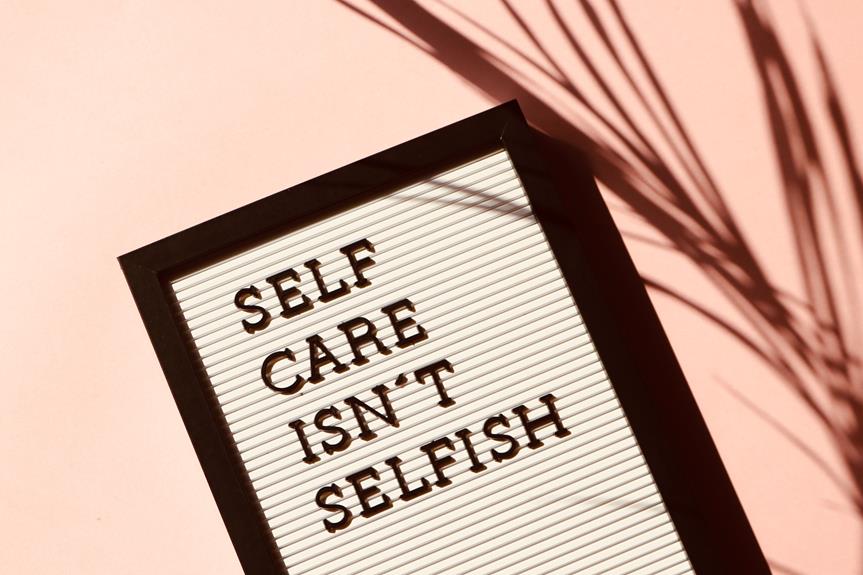Feeling cooped up and frazzled? You’re not alone.
I’m writing to the Modern Dads blog because, like many of you, I’ve been navigating the choppy waters of remote work while trying to be the best dad I can be. It’s not been easy. A study I stumbled upon recently hit home; it revealed that dads working from home are battling isolation and burnout more than those in traditional office settings. That’s why I’m sharing my top five mental health tips, honed from personal trial and error.
First, scheduling is everything. My partner, Alex, and I sync our calendars weekly to ensure we both get work and family time. Second, I’ve learned to embrace the chaos. When my son, Liam, interrupts a video call to show off his latest Lego creation, I roll with it. It’s become a talking point and brings a human touch to meetings. Third, exercise has been my savior. Whether it’s a quick jog or a family bike ride, staying active keeps the blues at bay. Fourth, I’ve made real connections online. Joining dad groups on social media has opened up a world of support and advice. Lastly, never underestimate the power of a hobby. Rediscovering my love for model trains has been surprisingly therapeutic.
A Moment of Clarity
The other day, as I sat working at my makeshift desk in the living room, my daughter, Emily, came up to me, her eyes wide with concern. She’d noticed I was more irritable lately, snapping over the smallest things. It was a wake-up call. Emily’s simple, heartfelt observation made me realize that I’d been so focused on balancing work and family life that I’d neglected my own mental health. It was a poignant reminder of why taking care of ourselves is paramount, not just for our sake but for our families too. This journey as a stay-at-home dad has taught me that it’s okay to admit when you’re struggling and to take steps to address it.
Key Takeaways
- Establish clear boundaries between work and personal life to maintain balance.
- Prioritize self-care by incorporating exercise breaks and relaxation techniques.
- Seek support from loved ones for emotional understanding and camaraderie.
- Utilize mental health apps for stress management and self-improvement.
Setting Boundaries for Work-Life Balance

To maintain a healthy work-life balance while working remotely, it’s crucial to establish clear boundaries between your professional and personal life. Setting boundaries is essential for managing your time effectively and ensuring that work responsibilities don’t infringe on your personal time. Start by designating specific work hours and sticking to them as much as possible. Communicate these boundaries with your colleagues and family to manage expectations and create a structured routine.
When establishing boundaries, consider creating a dedicated workspace where you can focus solely on work-related tasks. This helps signal to yourself and others when you’re in work mode. Additionally, set realistic goals and prioritize tasks to manage your time efficiently. By organizing your workload and setting achievable objectives, you can prevent work from overflowing into your personal life.
Remember that setting boundaries isn’t only about time management but also about preserving your mental well-being. By clearly defining when work starts and ends, you can create a healthier work-life balance and reduce stress associated with remote work.
Prioritizing Self-Care Activities
Maintaining a healthy work-life balance by setting boundaries can create the space you need to prioritize self-care activities. In the realm of self-care, incorporating exercise breaks into your daily routine can significantly impact your mental well-being. Physical activity not only boosts your mood but also enhances cognitive function, making you more productive during work hours. Whether it’s a quick walk around the block or a brief at-home workout, these breaks can refresh your mind and body, ultimately improving your overall work performance.
Furthermore, relaxation techniques are vital for combating stress and promoting mental clarity. Taking a few minutes each day to practice deep breathing, mindfulness, or progressive muscle relaxation can help alleviate tension and anxiety. Engaging in these relaxation exercises can equip you with the tools to navigate work challenges with a clearer perspective and a calmer demeanor. Remember, investing time in self-care activities isn’t a luxury but a necessity for your mental health and overall well-being.
Seeking Support From Loved Ones

For remote-working dads, seeking support from loved ones is a crucial aspect of maintaining mental well-being while juggling work and family responsibilities. In times of stress and overwhelm, turning to those closest to you can provide a much-needed source of comfort and strength.
Here are some ways in which seeking support from loved ones can positively impact your mental health:
- Family connections: Reaching out to your family members for emotional support and understanding can help you feel less isolated and more connected, strengthening your bond with your loved ones.
- Friend networks: Talking to friends about your challenges can offer a fresh perspective and a sense of camaraderie, reminding you that you aren’t alone in your struggles.
- Listening ear: Sometimes, just having someone listen attentively to your concerns without judgment can be incredibly therapeutic and validating.
- Shared experiences: Sharing your experiences with loved ones can foster a sense of belonging and mutual support, making you feel more resilient in facing life’s obstacles.
Utilizing Mental Health Apps
When navigating the challenges of remote work and family life, incorporating mental health apps into your routine can provide valuable support and resources to help you prioritize self-care and well-being. Embracing technology is a powerful tool for staying connected to your mental health needs. These apps offer a range of features from mood tracking to guided meditation, tailored to support your mental wellness journey.
By utilizing mental health apps, you can conveniently access tools to manage stress, anxiety, and other common struggles faced by remote-working dads.
Tracking progress and monitoring your mood becomes more accessible with these innovative apps. They allow you to reflect on your emotional well-being, identify patterns, and make informed decisions to enhance your mental health. The convenience of having these resources at your fingertips empowers you to take proactive steps towards self-improvement.
Practicing Mindfulness and Meditation

Incorporating mindfulness and meditation practices into your daily routine can significantly enhance your mental well-being as a remote-working dad. These techniques can help you manage stress effectively and improve your overall emotional resilience.
Here are some key ways in which mindfulness and meditation can benefit you:
- Promotes Stress Management: Mindfulness and meditation provide you with the tools to better cope with the stressors that come with balancing work and family life.
- Enhances Clarity and Focus: By practicing mindful breathing, you can clear your mind and improve your ability to concentrate on tasks at hand.
- Boosts Emotional Well-being: Engaging in regular meditation sessions can help regulate your emotions and promote a sense of inner peace.
- Fosters Better Communication: Mindfulness practices can enhance your ability to listen actively and communicate more effectively with your loved ones, leading to stronger relationships.
How Can Remote-Working Dads Apply Mental Health Tips to Ease Burnout?
Remote-working dads can apply various tips for reducing stayathome dad burnout to alleviate mental strain. Setting clear boundaries between work and personal time, regular exercise, and seeking support from loved ones or a mental health professional are effective ways to preserve mental wellbeing and prevent burnout.
Can Remote Working Help Alleviate Stay-at-Home Dad Guilt?
Remote working can provide valuable flexibility for stay-at-home dads, potentially easing dad guilt. By setting boundaries, prioritizing family time, and seeking support, tips for dad guilt can be implemented effectively. With the ability to balance work and family life at home, remote working can alleviate some of the pressures felt by stay-at-home dads.
Conclusion
As a dad working from home, I’ve discovered simple steps for better mental health.
I set clear work-life boundaries.
I make time for self-care.
I reach out when I need support.
I use mental health apps.
I practice mindfulness.
These steps help me stay productive and balanced.
I’d love to hear how other dads are managing their mental health while working remotely. Share your experiences and tips in the comments below.
And if you found this post helpful, please share it on social media to help us reach more dads through our blog, Modern Dads.


Leave a Reply